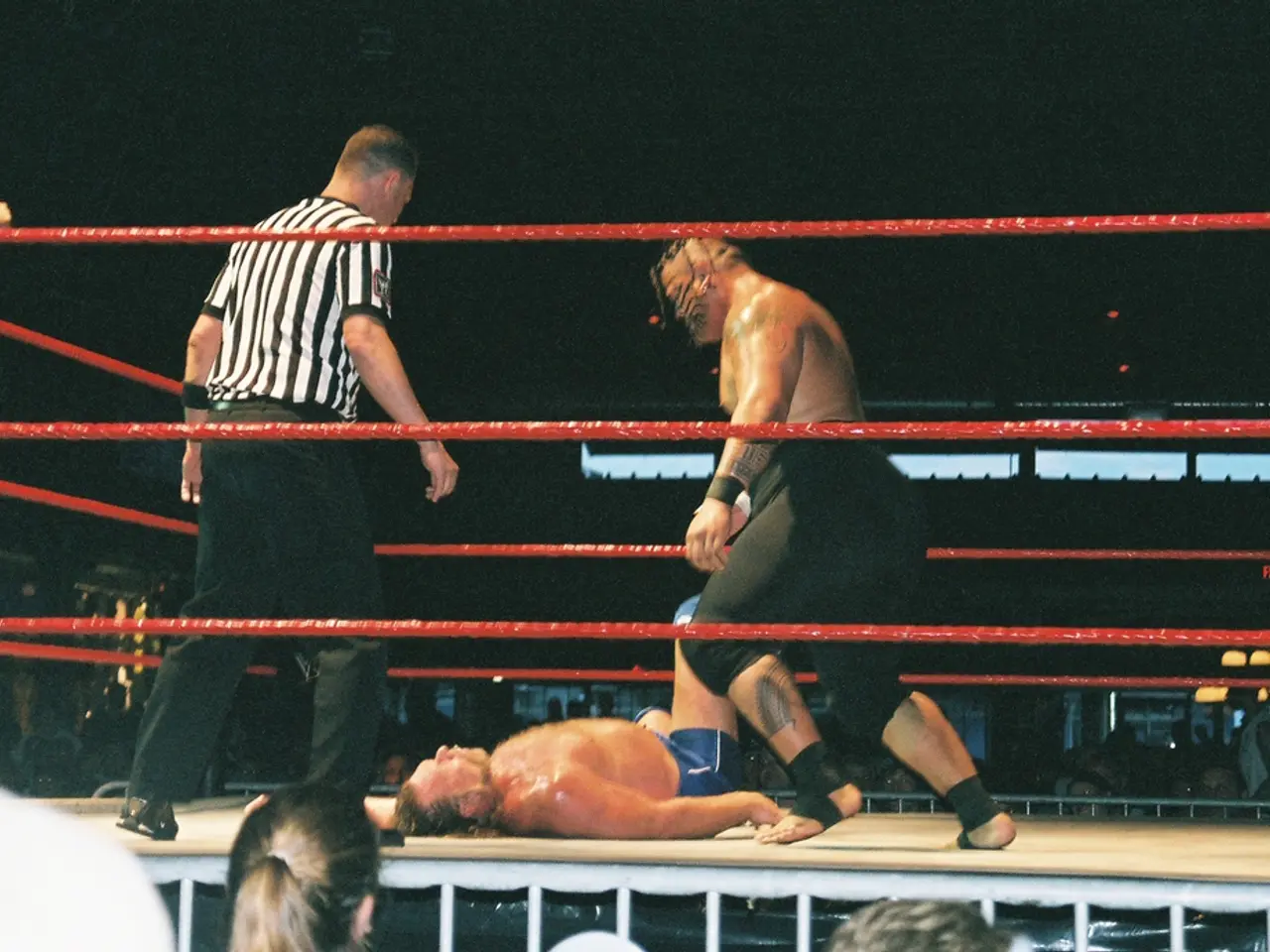Execution of the Twitter murderer, responsible for the deaths of nine individuals, proceeds in Japan.
Fresh Take:
JAPAN PUTS THE "TWITTER KILLER" TO DEATH
Japan executed a notorious internet predator on Friday, known as the "Twitter Killer." This marks Japan's first enactment of the death penalty since 2022.
This vicious criminal, identified as Takahiro Shiraishi, was hanged for slaughtering nine victims he met online. In an appalling display of depravity, he targeted users posting about self-harm, falsely promising assistance with their plans or even willingness to die alongside them.
Japan's Justice Minister, Keisuke Suzuki, confirmed the heinous nature of Shiraishi's crimes, which included robbery, rape, murder, desecration of a corpse, and abandonment of a corpse. The victims were terrorized, strangled then dismembered, their remains stashed away in toolboxes and forgotten cold-boxes.
"The cruel actions of Shiraishi caused widespread anxiety and shock within society," Suzuki stated. "Following careful deliberation, I ordered the execution."
Capital punishment remains a controversial issue, and Japan, along with the United States, is one of the only G7 nations still employing this harsh penalty. Despite growing international criticism, the Japanese public overwhelmingly supports the practice.
For Shiraishi's vile activities, he was sentenced to death in 2020. His brutal actions unfolded in his small apartment near the capital. He lured his victims to their inevitable demise, stashing their dismembered bodies in coolers and toolboxes, covering the evidence with litter to mask the stench. Defending Shiraishi, his lawyers argued that his victims had signaled their wish to die, essentially giving consent. However, this argument fell on deaf ears, as a judge deemed Shiraishi's actions to be "cunning and cruel."
Since 2009, Japan has adopted trial-by-jury, involving the public in deciding capital punishment cases. However, issues of bias, fabricated evidence, and miscarriages of justice have arisen, with cases like that of Iwao Hakamada raising concerns about the system's fairness. Hakamada, who had spent decades on death row for murders he did not commit, was later acquitted, highlighting the need for transparency and reform.
The execution process in Japan is highly secretive, with inmates being informed on the very same day as the execution. This striking lack of transparency has sparked criticism both domestically and abroad.
As of mid-2025, Japan has approximately 105 prisoners on death row, with nearly half petitioning for retrials. With recent high-profile cases like Shiraishi's and Kato's, the issue of capital punishment in Japan remains a topic of heated debate.
War-and-conflicts news highlight the execution of the "Twitter Killer," Takahiro Shiraishi, in Japan, sparking international debates on politics regarding capital punishment. In the realm of general news, crime-and-justice reports reveal Japan's controversial use of the death penalty, despite growing criticism and concerns about fairness in its justice system.







